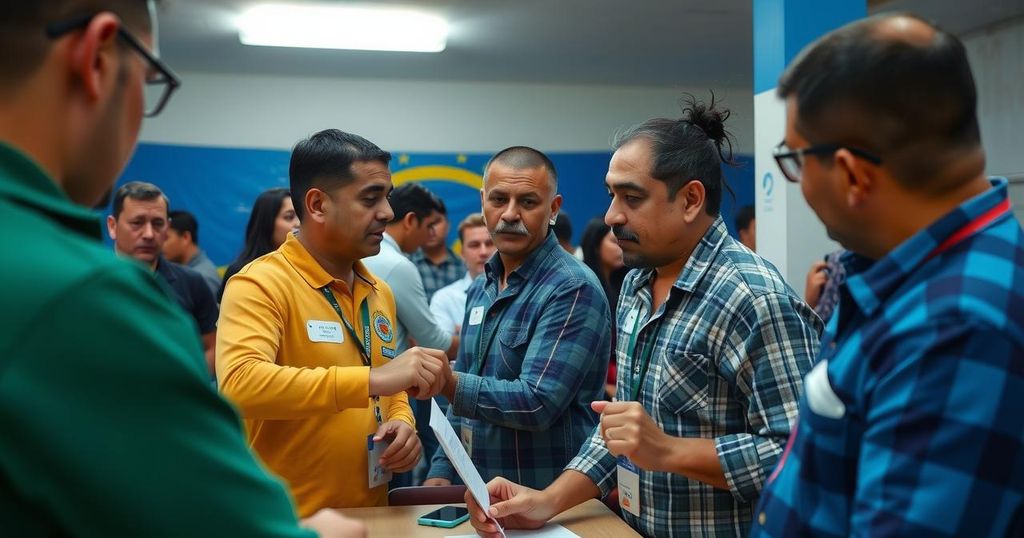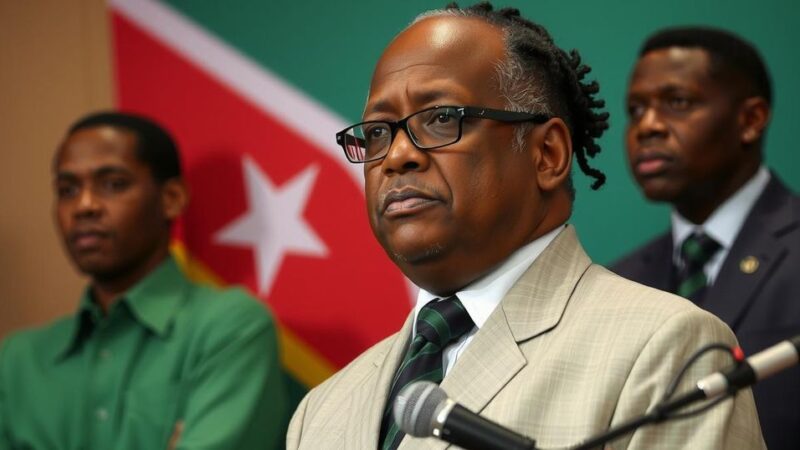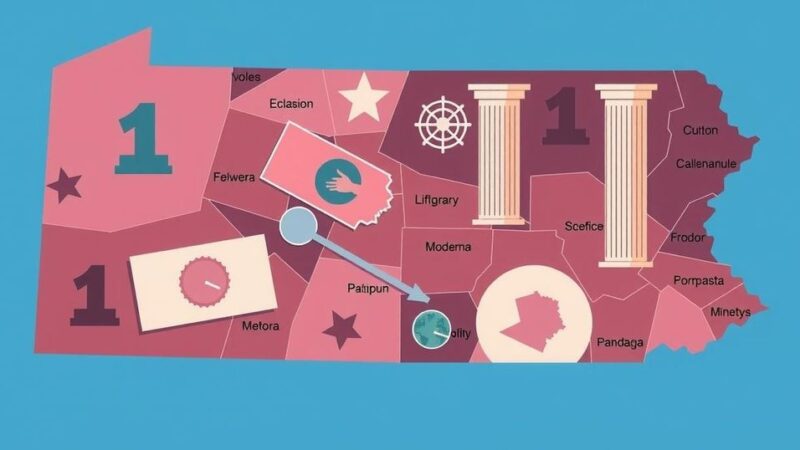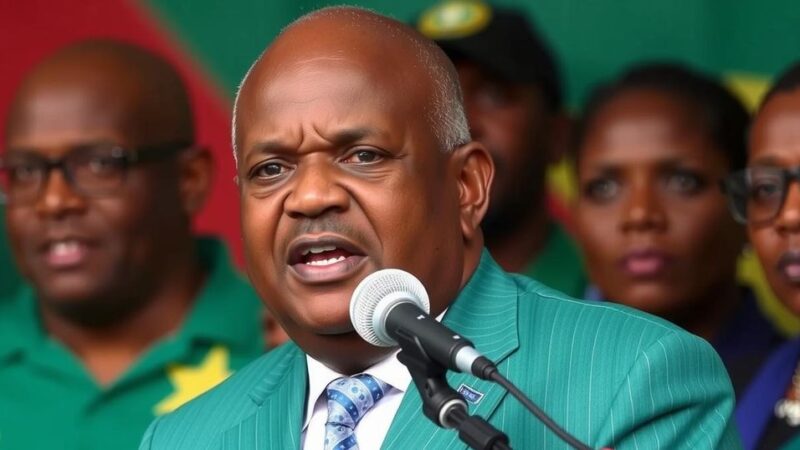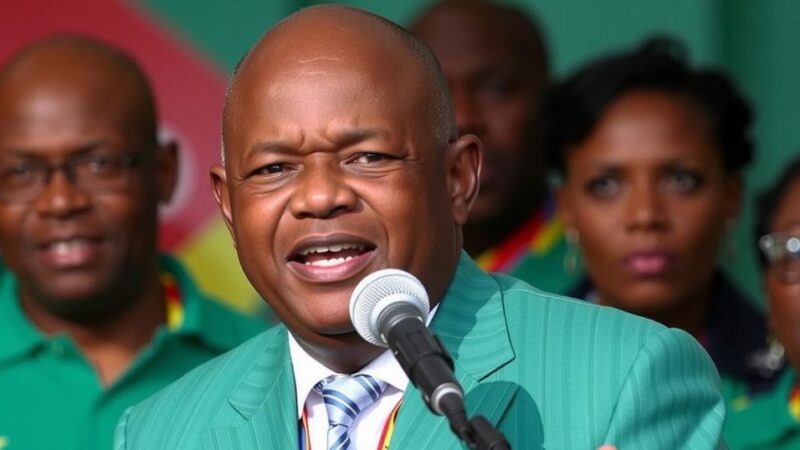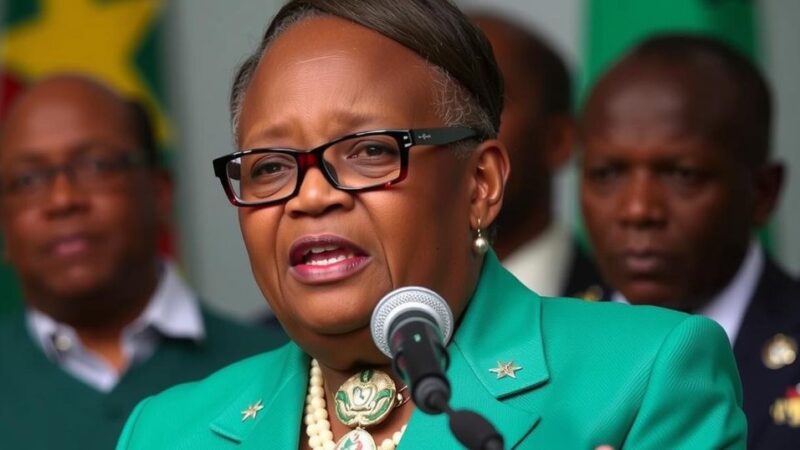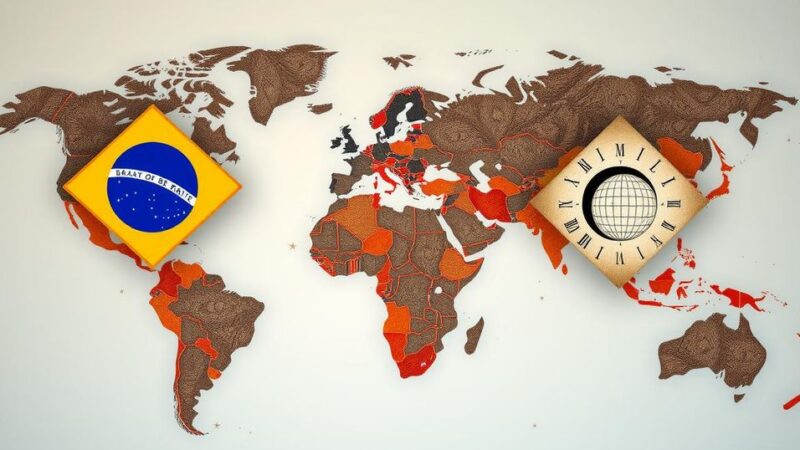Uruguay held a crucial presidential run-off election where José “Pepe” Mujica’s leftist alliance, Frente Amplio, aimed to reclaim power against Alvaro Delgado of the National Party. Voter turnout was significant, with tight polling results suggesting a close race. Economic issues and voter sentiment played a pivotal role, with many expressing uncertainty in their candidate choices.
Voters in Uruguay participated in a presidential run-off election, determining the future leadership of the nation after five years governed by a right-wing administration. The election featured the leftist coalition, Frente Amplio (Broad Front), led by former President Jose “Pepe” Mujica, seeking to reclaim power against Alvaro Delgado of the National Party. As polling stations opened at 8:00 AM local time, approximately 3.4 million Uruguayans prepared to cast their ballots until 7:30 PM, with initial results anticipated shortly thereafter.
Jose Mujica’s hombre Yamandu Orsi represented the Broad Front, having garnered 43.9% of the vote in the prior round, while Delgado, with support from his National Party and the Colorado Party, accounted for 26.8%. The race was predicted to be close, possibly within a margin of 25,000 votes separating the candidates. Political tension remained relatively subdued in Uruguay compared to its larger neighbors, facilitating a less polarizing environment.
President Luis Lacalle Pou enjoyed notable popularity, boasting a 50% approval rating, yet his party faced criticism over issues related to rising crime rates despite successes in employment and wage growth. Orsi has committed to a moderate policy framework, trying to soothe fears of an abrupt leftist shift.
The appeal for voter support extended to individuals who previously favored smaller or independent parties, alongside those with lower participation rates in the first round. Notably, neither candidate articulated new proposals in the days leading to the election, leading some voters, such as Rosario Gusque, to express uncertainty about their choices, saying, “I do not know who I am voting for.”
As Uruguay nears the conclusion of a significant electoral year, one central question remains: whether the leftist coalition can defy a global trend where ruling parties experience diminished support amid economic hardships.
The context of the Uruguayan elections unfolds as a significant transitional moment for the nation, having shifted from leftist governance under Mujica to a right-wing regime. This election cycle highlights the dynamics between national coalition politics and the struggles prevalent in contemporary economies, especially regarding cost of living issues. The competition centers on the rightward shift observed in other Latin American countries, placing Uruguay’s relatively stabilizing political landscape in sharp contrast against a backdrop of global electoral discontent. The candidates’ strategies and voter sentiments reveal insights into what role governance will play in an increasingly challenging economic climate for citizens.
The presidential run-off in Uruguay epitomizes a critical juncture in the political landscape, as voters choose between a leftist resurgence and a conservative continuation amidst fluctuating approval ratings and economic concerns. The outcome will reflect not only local priorities but also an alignment with broader regional dynamics of discontent against incumbent powers. Ultimately, this election elucidates the interplay between established political alliances and the electorate’s response to socio-economic pressures, potentially setting the tone for Uruguay’s governance in the coming years.
Original Source: www.aljazeera.com

